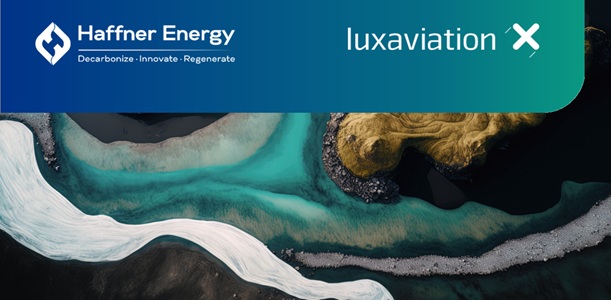Luxaviation Group, a major player in global business aviation, is in talks to take an active role in SAF Zero, a new entity launched by Haffner Energy to accelerate the development and adoption of sustainable aviation fuel (SAF). The announcement, made during the International Paris Air Show, signals Luxaviation’s intent to contribute funding, strategic guidance, and offtake agreements to support SAF Zero’s early-stage projects, including the flagship Paris-Vatry SAF initiative in France.
SAF Zero: A Platform for SAF Scale-Up
SAF Zero was created by Haffner Energy as a dedicated investment and project development platform aimed at bringing together key stakeholders to fast-track SAF production. The venture leverages Haffner’s proprietary SAFNOCA® technology, which can convert a wide range of organic waste and biomass into syngas, a crucial feedstock for sustainable aviation fuel. This technology is compatible with multiple SAF production pathways, such as Alcohol-to-Jet and Fischer-Tropsch, and is designed to meet evolving regulatory standards in Europe and beyond.
Operating under an exclusive license, SAF Zero will supply Haffner Energy’s technology to third parties, offering not only the design and delivery of critical equipment but also the potential for operational support. Haffner Energy, with over three decades of experience in clean fuels, will provide engineering expertise and equipment for projects developed under the SAF Zero umbrella.
Philippe Haffner, co-founder and CEO of Haffner Energy, emphasized the significance of this collaboration:
“We are thrilled to collaborate with Luxaviation, a committed partner working alongside us to position SAF Zero as a cornerstone of Europe’s clean aviation strategy.”
Paris-Vatry SAF: Flagship Project in France
One of the first major projects under the SAF Zero platform is the Paris-Vatry SAF facility, located at Paris-Vatry airport in France’s Grand Est region. Developed in partnership with LanzaJet and LanzaTech, the plant aims to produce 30,000 tonnes of SAF annually using local agricultural residues and advanced thermolysis technology, with the capacity to expand further. Full-scale production is targeted for 2030, aligning with the next phase of the European SAF mandate.
The Paris-Vatry project is seen as a strategic driver for regional economic development and job creation, as well as a competitive advantage for the airport in attracting airlines seeking greener operations.
Luxaviation’s Sustainability Push
Luxaviation’s interest in SAF Zero is part of its broader commitment to decarbonize business aviation. The company has launched its own “Go-to-Zero” investment fund to support the adoption of SAF and other clean technologies, with a goal of achieving net-zero carbon emissions by 2030. Luxaviation’s sustainability strategy includes improving fuel efficiency, expanding SAF use, electrifying ground operations, and offsetting residual greenhouse gas emissions.
Patrick Hansen, CEO of Luxaviation Group, commented on the partnership:
“At Luxaviation, we believe that the future of aviation must be sustainable, and that requires bold partnerships and innovative solutions. Our collaboration with Haffner Energy and our interest in SAF Zero reflect our commitment to accelerating the adoption of sustainable aviation fuel and driving meaningful change across the industry.”
Recent initiatives include offering SAF blends at its Paris Le Bourget FBO and tracking progress through annual sustainability reports. Luxaviation is also a founding member of Project SkyPower, an international coalition focused on accelerating SAF adoption across the aviation industry.
Market Context and Future Outlook
The SAF market is poised for rapid growth, with airlines and operators worldwide committing to ambitious SAF usage targets. Industry data suggests that by 2030, SAF could account for 6-10% of total aviation fuel supply, driven by regulatory mandates and increasing demand for emissions reduction solutions.
By joining forces, Luxaviation and Haffner Energy aim to position SAF Zero as a cornerstone of Europe’s clean aviation strategy and a catalyst for industry-wide change. Their collaboration is expected to unlock new investment, foster innovation, and help scale SAF production to meet both environmental goals and market needs.





